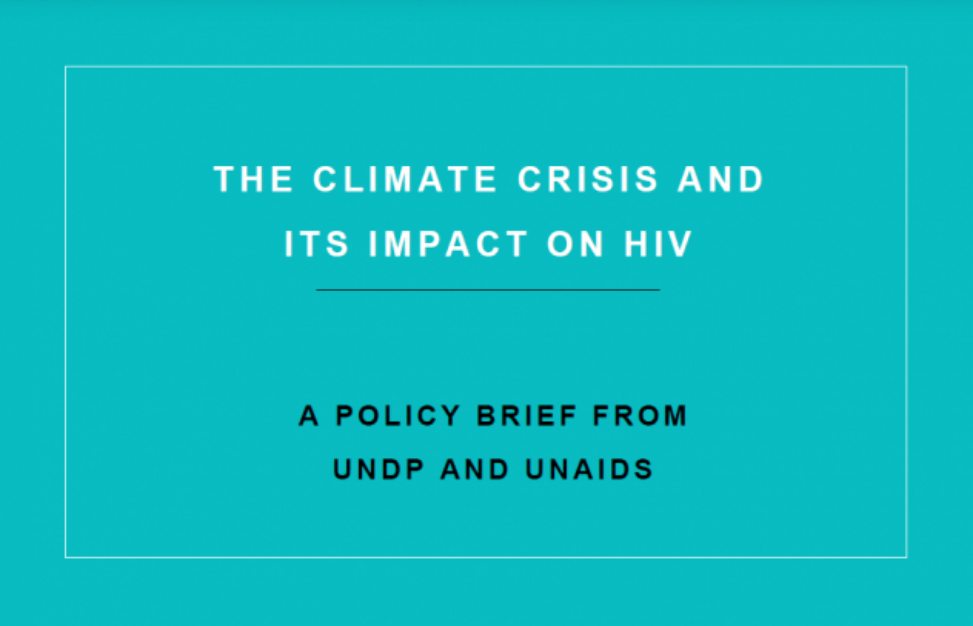
Press release
Climate emergency risks worsening AIDS epidemic, UN warns at COP29
Countries facing “triple funding crisis” of insufficient climate finance, insufficient HIV funding, and crippling debt
GENEVA/BAKU, 21 November 2024—The climate crisis could disrupt HIV services and lead to increasing HIV risk for some of the most vulnerable populations, the Joint United Nations Programme on HIV/AIDS (UNAIDS) and United Nations Development Programme (UNDP) have warned at the COP29 Climate Conference in Baku, Azerbaijan.
In a new report, the UN agencies warn that eroded public health infrastructure, heightened prevalence of diseases that interact with HIV, food insecurity, water scarcity, and the mass displacement of people – all likely to intensify due to climate change – could drive new HIV infections and lead to more AIDS-related deaths.
“The progress we have made tackling AIDS is fragile – and it could be unwound by runaway climate change,” said Winnie Byanyima, Executive Director of UNAIDS. “Some of the most climate vulnerable countries also have the highest HIV burden, and are the countries in the greatest debt, compounding injustice on injustice. We need to find ways to ease the triple funding crisis of AIDS, climate, and debt, and invest in the communities on the front lines of these intertwined crises.”
Many of the countries at the sharp end of climate change are also facing the worst impacts of the AIDS epidemic, and climate change is likely to exacerbate the inequalities of AIDS, UNAIDS says. Of the 4,000 adolescent girls and young women aged between 15 and 24 years newly infected with HIV every week, 3,100 live in Sub-Saharan Africa, where severe heatwaves and drought could leave whole regions uninhabitable.
HIV-focused institutions are responding, with 70% of financing from the Global Fund to Fight HIV, Tuberculosis and Malaria set to go to 50 of the most climate-vulnerable countries. But many of these countries are facing a triple funding crisis, with insufficient climate finance, a US$ 9.5billion gap in HIV funding, and the crushing burden of sovereign debt.
Almost half of humanity live in countries spending more on servicing debt than on healthcare. In Western and Central Africa, countries are spending seven times more on repaying debt than on health. With 71% of public climate financing coming as loans rather than grants, the climate crisis will only make this problem worse.


Comments